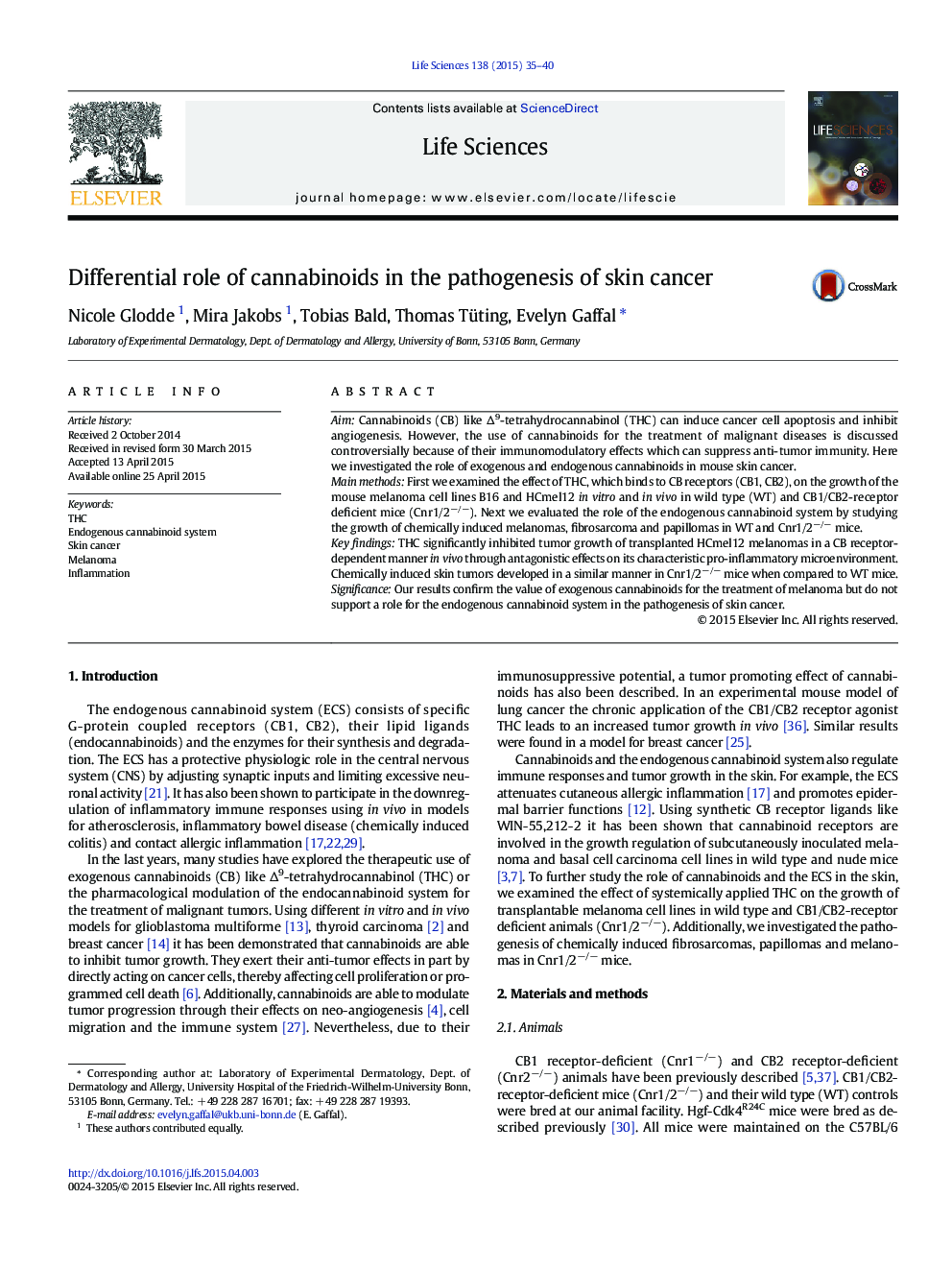| Article ID | Journal | Published Year | Pages | File Type |
|---|---|---|---|---|
| 2550831 | Life Sciences | 2015 | 6 Pages |
AimCannabinoids (CB) like ∆9-tetrahydrocannabinol (THC) can induce cancer cell apoptosis and inhibit angiogenesis. However, the use of cannabinoids for the treatment of malignant diseases is discussed controversially because of their immunomodulatory effects which can suppress anti-tumor immunity. Here we investigated the role of exogenous and endogenous cannabinoids in mouse skin cancer.Main methodsFirst we examined the effect of THC, which binds to CB receptors (CB1, CB2), on the growth of the mouse melanoma cell lines B16 and HCmel12 in vitro and in vivo in wild type (WT) and CB1/CB2-receptor deficient mice (Cnr1/2−/−). Next we evaluated the role of the endogenous cannabinoid system by studying the growth of chemically induced melanomas, fibrosarcoma and papillomas in WT and Cnr1/2−/− mice.Key findingsTHC significantly inhibited tumor growth of transplanted HCmel12 melanomas in a CB receptor-dependent manner in vivo through antagonistic effects on its characteristic pro-inflammatory microenvironment. Chemically induced skin tumors developed in a similar manner in Cnr1/2−/− mice when compared to WT mice.SignificanceOur results confirm the value of exogenous cannabinoids for the treatment of melanoma but do not support a role for the endogenous cannabinoid system in the pathogenesis of skin cancer.
